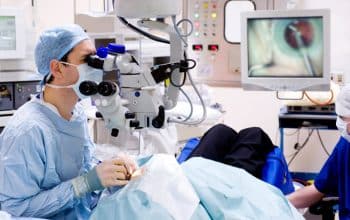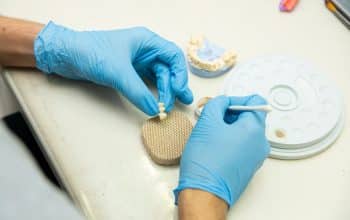SELECT THE WORDS & LEVEL
When considering possible vocations, being a paramedic was likely not at the top of your list. And you wouldn’t be blamed for it; after all, it’s probably not what most career coaches would recommend. However, if you have considered finding a job in healthcare but are still oscillating and don’t know which specific field to choose, you might want to have a look and weigh your options. If you feel like you have all the prerequisite qualities and skills, and can also develop and acquire new ones, then this may be a sign to think about working in the emergency sector. Here are some reasons why becoming a paramedic would suit you and give you both personal and professional fulfillment.

Making a difference in the community
Perhaps the most crucial aspect of the job, there’s a lot of satisfaction to be had when accomplishing your work in this field. If you like helping people and derive a sense of accomplishment out of assisting others, there is perhaps no better profession to which you are suited. You will provide life support, help remove patients from high-risk situations and assess the best course of treatment for the injured ones. In this way, you save lives every day. In order to make sure you offer the best care you can, your morale also matters. As a worker in the emergency sector, you must learn to work well under pressure and through high-stress situations. It is not essential only for you but also for your patients that you keep calm and collected. In this way, you don’t also administer treatment in optimal time; you also reassure your patient that they are in good hands.
Short duration training time
Completing the necessary education and training does not take a very long time. An emergency care learning program is usually hands-on in order to endow you with the self-reliance and self-sufficiency necessary when dealing with perilous and uncertain situations and conditions. If you want to become an EMT, namely, an Emergency Medical Technician, you must complete a minimum of 170 hours of training. In most cases, you do not need previous medical experience in order to enroll in an EMT program. Conversely, if you aim towards becoming a paramedic, you need to complete a period of instruction that may range between six and twelve months. While it is a longer schooling experience, rest assured that you won’t get bored for one second. You also benefit from the guidance of the tutors during the duration of your training so that everything is made clear and there are no uncertainties about how you should do your job. In order to qualify as a paramedic, however, you must go through EMT basic training and, ideally, have some practical experience in the EMT field of at least half a year. You also need a more in-depth knowledge of Anatomy and Physiology.
Lifelong learning
Without a doubt, constant, lifelong learning is a must in the emergency services sphere. The process happens organically as you encounter new challenges and problems you must solve each day. As you encounter them, you learn how to manage them. After all, this is a practical profession first and foremost. Here are some key ways in which constant learning makes you stay, and remain, on top of things:
- Stay tuned in with the latest developments in technology and treatment, and you’ll find it easier to operate medical apparatus and adapt to the latest evolutions in medicine, whether it is newly developed drugs or medical dressing
- Gain skills that can make you successful in other fields, should you choose to pursue them. The clear-mindedness required here will also make you cut a good figure in firefighting or law enforcement
- Obtain all the necessary attributes to climb the career ladder.
Great opportunities
The labor market is registering constant growth in the emergency sector. There is always a need for healthcare professionals and medical personnel, so you’d never have to worry on that front. The median age of the population being on the rise likewise means that there are more people who require special care and, therefore, more specialists to ensure they are all a priority. Emergency medicine workers are valued by their communities, and perceptions about them tend to be overwhelmingly positive. It is beneficial to work in a field with a good reputation, from which you are perceived to be effective, helpful, trustworthy and a good communicator. And keep in mind your qualifications are needed in many places, not just in your hometown. You have the opportunity to work in eclectic locations such as overseas, on oil platforms or even on movie sets.
Developing connections
Owing to the nature of the job, getting close to people comes easily. You will definitely become close to your fellow training colleagues. A significant part of the success of a medical procedure lies in the teamwork of the medical staff. If they can work well together, the patient is more likely to improve. What’s more, given the fact that this work is not your usual, run-of-the-mill job, you are more likely to make lasting friendships. The nature of the job means you encounter many strenuous circumstances. Very often, your prompt attention may make the difference between life and death or serious disability. This is a profound responsibility, the extent of which may not be understood by people, not in contact with it. Here is where your colleagues come into play, and your teamwork will provide a solid foundation for you to rely on and gain confidence from.
If you feel like you have the ability to make rapid and precise decisions, be meticulous in your work without sacrificing your quickness of action, don’t lose your cool if something unexpected happens and throws you off your routine, sharp critical thinking, good interpersonal skills and flexibility (it will come in handy depending on your shifts, consider taking the path of a paramedic or EMT. Also, keep in mind that this is not for the faint of heart. If you see yourself in some, most, or even all of these traits, this may just be the path for you.



